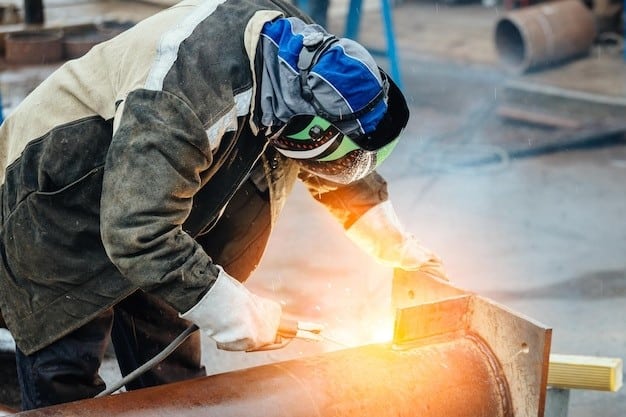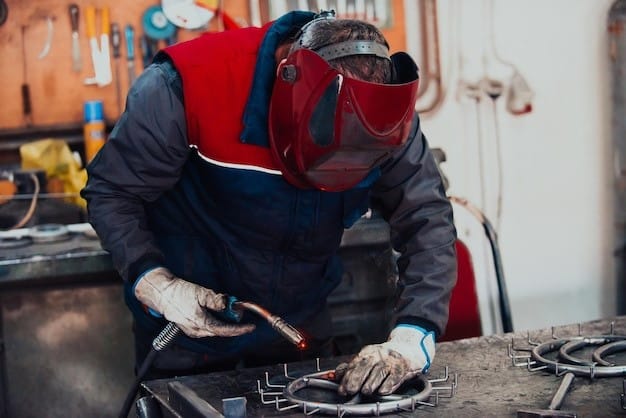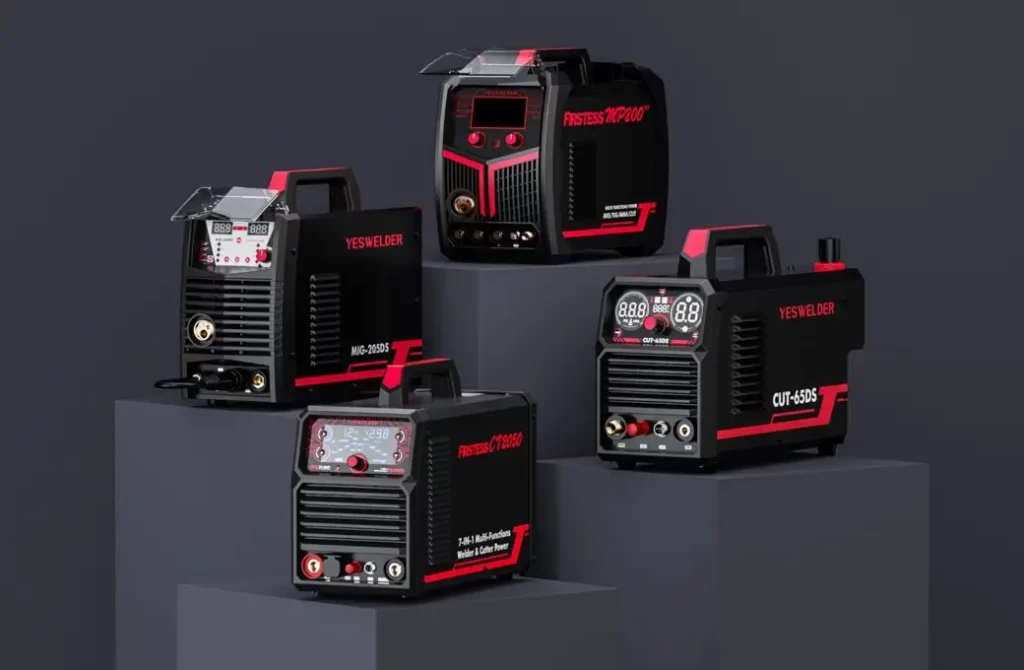Choosing between renting and buying welding equipment is a critical decision that can significantly impact project efficiency and budget. Many professionals struggle with determining the best approach for their needs, often weighing the pros and cons without a clear direction. For short-term or infrequent projects, renting might seem ideal, offering flexibility and cost control.
On the other hand, buying can be a wise investment for long-term use, ensuring access to equipment whenever needed. By understanding the specific requirements of your welding projects, you can make an informed decision that optimizes both performance and financial resources.
Determining the Type of Welding
When choosing welding equipment, understanding the type of welding required for your project is essential. Different welding techniques and machines serve various purposes, such as MIG (Metal Inert Gas), TIG (Tungsten Inert Gas), and Stick welding. MIG welding machine is often used for general fabrication and is suitable for welding a wide range of metals. TIG welding, known for its precision, is ideal for projects involving thinner materials or requiring clean welds, such as in the automotive or aerospace industries. Stick welding, on the other hand, is commonly used for heavy-duty tasks and outdoor projects where equipment portability is important.
Evaluating Project Duration and Intensity
- Short-term Projects: Renting equipment can be cost-effective, providing access to the necessary tools without a significant upfront cost.
- Long-term Projects: Buying equipment may be more economical in the long run, ensuring availability and reducing rental expenses over time.
- Project Frequency: Frequent use may justify purchasing, while occasional use might lean towards renting.
- Intensity of Use: High-intensity tasks may require owning durable equipment, while less demanding projects might benefit from renting.
Pros of Renting Welding Equipment
- Cost Efficiency for Short-Term Projects: Renting welding equipment is a practical choice for projects with limited duration. It allows you to use high-quality tools without a significant initial investment, which can be particularly beneficial for one-time or infrequent jobs. Renting also eliminates the need to store and maintain equipment when it’s not in use.
- Maintenance and Repair Included: The rental company often handles maintenance and repairs when renting welding equipment. This ensures the tools are always in good working condition, reducing downtime and the hassle of dealing with unexpected breakdowns.
- Access to Various Choices: Renting offers flexibility in choosing the right equipment for different projects. Whether you need a specific type of welder for a particular task or want to try the latest models without purchasing them, renting allows you to select the best tool for each job.
Cons of Renting Welding Equipment
- Higher Costs for Long-Term Use: While renting is cost-effective for short-term projects, it can become expensive over extended periods. The cumulative rental fees may exceed the cost of purchasing equipment, making it less economical for ongoing or frequent use.
- Limited Customization: Rented equipment may not always meet specific customization needs. You are limited to what is available from the rental company, which might not fully align with the exact requirements of your project. This can lead to compromised efficiency and performance.

Pros of Buying Welding Equipment
- Long-Term Cost Savings: Purchasing welding equipment can lead to significant cost savings over time, especially for ongoing or frequent projects. The upfront investment is balanced by eliminating rental fees, making ownership more economical in the long run. Once purchased, the equipment becomes an asset, reducing overall project costs.
- Customization: Owning your welding equipment allows greater customization to meet specific project requirements. You can modify or upgrade the tools, ensuring they align perfectly with your work needs. This flexibility can enhance the efficiency and effectiveness of your welding projects.
- Increased Efficiency: Having your equipment readily available whenever needed can improve project efficiency. There’s no need to wait for rental availability, and you can work on your schedule, leading to smoother operations and potentially quicker project completion.
Cons of Buying Welding Equipment
- Maintenance and Repair Costs: Owning welding equipment means taking on the responsibility for its maintenance and repairs. These ongoing costs can increase, especially if the equipment requires frequent servicing. Regular maintenance is essential to keep the tools in optimal condition, which can be time-consuming and costly.
- Depreciation: Like any other equipment, welding tools depreciate over time. This depreciation can reduce the equipment’s resale value, making it a less attractive investment in the long term. Additionally, older equipment may become outdated, requiring further investment in newer models.
Table Explaining Factors Affecting the Cost of Welding Equipment
| Factor | Renting (Pros) | Renting (Cons) | Buying (Pros) | Buying (Cons) |
| Cost | Lower upfront costs | Expensive over long-term use | Long-term cost savings | High initial investment |
| Maintenance | Included in rental fee | None | Full control over maintenance | Ongoing maintenance and repair costs |
| Flexibility | Access to a wide range of equipment | Limited by rental availability | Always available when needed | Limited to owned equipment |
| Customization | Use equipment as-is, no customization needed | No ability to customize equipment | Ability to customize and upgrade | Equipment may become outdated |
| Availability | No storage needed, rent as needed | Dependent on rental company’s stock | Equipment is always on hand | Requires storage space |
Key Considerations Before Deciding
Project Frequency and Duration
When deciding whether to rent or buy welding equipment, consider how often and for how long the equipment will be used. Purchasing equipment might be more economical for frequent or ongoing projects, as it avoids the cumulative costs of repeated rentals. Ownership ensures that the equipment is always available, allowing flexibility in scheduling and reducing downtime.
On the other hand, renting might be the more cost-effective choice if your projects are infrequent or of short duration. Renting allows you to access high-quality equipment without the burden of storage and maintenance when it’s not in use.
Budget and Financial Planning
Your budget and financial plan are crucial in the decision-making process. If not planned carefully, purchasing welding equipment requires a significant upfront investment, which might strain your financial resources. However, owning equipment can be a cost-saving measure if the budget allows.
Conversely, renting offers a lower initial cost, which can be more manageable within a limited budget. It’s important to weigh the long-term financial implications of both options. A thorough financial analysis should include potential savings from ownership versus the flexibility and reduced immediate expenditure that renting offers.
Technology Requirements
The type of technology required for your welding projects should also influence your decision. Welding technology is continually evolving; owning equipment means you might have to invest in upgrades to keep up with industry advancements.
If your projects demand the latest technology or if you need specialized equipment for specific tasks, renting might be the better option. Renting allows you to access the most up-to-date equipment without the financial commitment of purchasing it. However, if your technology needs are stable, purchasing could be more beneficial, allowing you to maintain consistent access to the necessary tools.

Maintenance Requirements
Maintenance is a key consideration when deciding whether to rent or buy welding equipment. Owning equipment is responsible for regular maintenance and repair, which can be time-consuming and costly. These ongoing requirements can impact your overall project budget and timeline. Renting, however, typically includes maintenance services as part of the rental agreement. This means the rental company keeps the equipment in good working condition, reducing the burden on you.
Storage and Transportation
Another important consideration is the storage and transportation of the welding equipment. If you own the equipment, you must ensure adequate storage space when not in use. Transporting heavy or bulky welding tools to different job sites can be challenging and costly. Renting equipment can simplify logistics, as rental companies often offer delivery and pickup services, saving time and effort. For projects requiring frequent relocation or limited storage facilities, renting might be the more practical choice.
Flexibility and Adaptability
Flexibility is a significant factor in choosing between renting and buying. If your projects vary in scope and require different types of welding equipment, renting provides the adaptability needed to select the right tool for each job. Renting allows you to switch between different machines as your project needs change, ensuring you always have the most suitable equipment. While less flexible, buying can still be advantageous if your projects are consistent and require the same equipment repeatedly. In such cases, owning reliable tools can streamline your operations and reduce dependency on external sources.
Cost to Rent Welding Equipment
Renting welding equipment offers a flexible cost structure that can benefit short-term projects. Rental fees are typically calculated daily, weekly, or monthly, allowing you to pay only when you use the equipment. This can result in significant cost savings for projects with a limited duration or those that require specific tools only occasionally. Additionally, renting eliminates the need for a large upfront investment, making it a more accessible option for those with budget constraints.
Cost to Buy Welding Equipment
Buying welding equipment involves a substantial initial expense, but it can be a more cost-effective option in the long run. Once the equipment is purchased, there are no ongoing rental fees, which can lead to savings over time, particularly for frequent or long-term projects. Ownership also allows you to fully control the use and maintenance of the equipment, ensuring it is always available when needed. However, the upfront cost can be a significant financial burden, and additional expenses such as maintenance, repairs, and depreciation must be considered. Purchasing is generally more economical for those who require constant access to welding tools.
Rental and Buying Cost Range of Welding Equipment
| Welding Equipment Type | Rent Cost (Per Day) | Rent Cost (Per Week) | Buy Cost Range |
| MIG Welder | $30 – $60 | $150 – $300 | $800 – $2,500 |
| TIG Welder | $40 – $80 | $200 – $400 | $1,000 – $3,000 |
| Stick Welder | $20 – $50 | $100 – $250 | $500 – $1,500 |
| Multi-Process Welder | $60 – $120 | $300 – $600 | $2,000 – $6,000 |
| Plasma Cutter | $50 – $100 | $250 – $500 | $1,500 – $4,000 |
Where to Buy Welding Equipment for Projects
Regarding purchasing reliable welding equipment, YesWelder stands out as a professional supplier. They offer a wide range of advanced welding tools, including MIG, TIG, and YesWelder stick welder, tailored to meet the needs of various projects. Whether you are working on a small-scale job or a large industrial project, YesWelder provides high-quality equipment that ensures precision and efficiency.
Their products are designed to handle different welding tasks, offering beginners and professionals the tools they need to succeed. With a focus on durability and performance, YesWelder is a trusted welding equipment source supporting long-term project goals. Also, you can find YesWelder welder distributors offline to purchase the best welding equipment.

Final Thoughts
Deciding between renting or buying welding equipment depends on various factors, including project frequency, budget, and specific needs. Renting offers flexibility and lower upfront costs, ideal for short-term projects, while buying provides long-term savings and customization for ongoing use. Carefully consider your project’s requirements to make the most informed choice. By understanding the pros and cons of each option, you can ensure that your decision supports your immediate goals and future growth.
FAQs
Is it cheaper to rent or buy welding equipment?
The cost-effectiveness of renting versus buying depends on the duration and frequency of your projects. Renting is generally cheaper for short-term use while buying can save money in the long run for frequent or long-term projects.
What are the advantages of renting welding equipment?
Renting offers flexibility, lower upfront costs, and the ability to use the latest technology without maintenance responsibilities. It’s ideal for short-term projects or when specific equipment is only needed occasionally.
When should I consider buying welding equipment?
Buying is recommended if you have ongoing or frequent welding projects, as it provides
- long-term cost savings,
- ownership, and
- the ability to customize your tools to meet specific project needs.
How do I determine the right welding equipment for my project?
Determine the type of welding (MIG, TIG, Stick, etc.), the project duration, and the use intensity. These factors will help you choose whether renting or buying is the better option and select the appropriate equipment.



